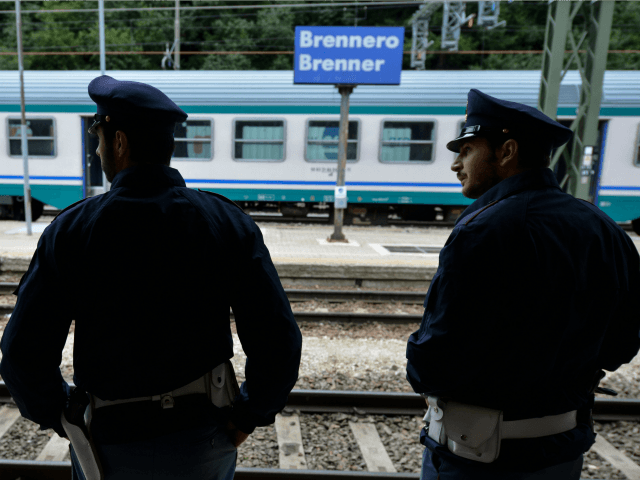As Austria steps up border security at the Brenner Pass, Italian authorities have joined European Union officials in denouncing the measures as fundamentally contrary to Schengen regulations guaranteeing open internal borders among member states.
On Wednesday, Tyrolean police chief Helmut Tomac announced the stationing of 250 police officers at the border, with the possibility of deploying soldiers as well in case of need.
The police chief also said that the Austrian government would be preparing a 370-meter fence to run along the border. “It is a normal fence and not a barbed wire,” Tomac said. “It will only be set up if necessary in the event of a massive influx of migrants.”
Tomac explained that a supporting framework would be built but the wire mesh itself will be attached only in case of need, depending on Italy’s ability to stem the flow of migrants to the Austrian border.
“Austria does not intend to isolate itself but to channel the flow of migrants,” Tomac said, adding he is confident that the addition of the wore mesh can be avoided.
With warmer weather arriving, migrants have been crossing the Mediterranean Sea from Africa to Italy in increasing numbers, and Austria has complained of Rome’s inability or unwillingness to control the numbers of migrants traveling onward toward northern Europe.
Italy’s prime minister Matteo Renzi reacted forcefully to the Austrian plan, saying it violates the Schengen treaty. “The proposal of closing the Brenner Pass is shamelessly against European regulations, as well as against history, against logic and against the future,” Renzi said Wednesday.
Italy’s interior minister, Angelino Alfano, echoed Renzi’s criticisms of the plan, calling it “unacceptable” as well as contrary to “logic and common sense.” Alfano said that border crossings between Italy and Austria are at “historic lows,” adding that “our job is to convince our Austrian partners of the senselessness of their behavior.”
In its complaint against Austria, Italy is backed by the European Union Commission, which has asked Vienna for a clarification of its intentions.
“Instead of erecting walls we should build bridges,” said the EU Commissioner for Migration, Dimitris Avramopoulos. “We understand that countries have difficulties and are under pressure, but what worries us is putting Schengen up for debate concerning the free movement of citizens.”
In an interview with the Austrian daily Die Presse, Italy’s foreign minister Paolo Gentiloni expressed his hope that “Vienna will not make unilateral decisions in the coming months, and that Austria will continue to work closely with us in the refugee crisis.”
Along with its new border control measures, Austria has also passed a controversial new law that tightens existing asylum regulations, allowing that most asylum-seekers be rejected directly at the border in the case of a “state of emergency” involving unusually high numbers of applicants.
In the face of criticism from human rights groups, Interior Minister Wolfgang Sobotka defended the new law, saying that Austria had no other choice as long as “so many other EU members fail to do their part” to stem the tide of migrants.
“We cannot shoulder the whole world’s burden,” he said.
The new legislation was passed just days after the first round of Austria’s presidential vote, in which Norbert Hofer of the rightwing Freedom party (FPÖ) soundly beat his opponents, making him the likely winner of a run-off ballot to be held on May 22.
Hofer has been openly critical of the European Union, saying that Austria must defend itself from an “EU debt and liability union.” He has also said that most of the migrants arriving into Europe are not “true refugees,” but rather economic migrants who are putting an unbearable strain on the European social system.
Over the weekend, several hundred demonstrators, including some leftist politicians, gathered at the Brenner Pass to protest Austria’s tighter anti-migrant border checks. Austrian police had to resort to batons and pepper spray to repel the Italian marchers.
Follow Thomas D. Williams on Twitter Follow @tdwilliamsrome

COMMENTS
Please let us know if you're having issues with commenting.